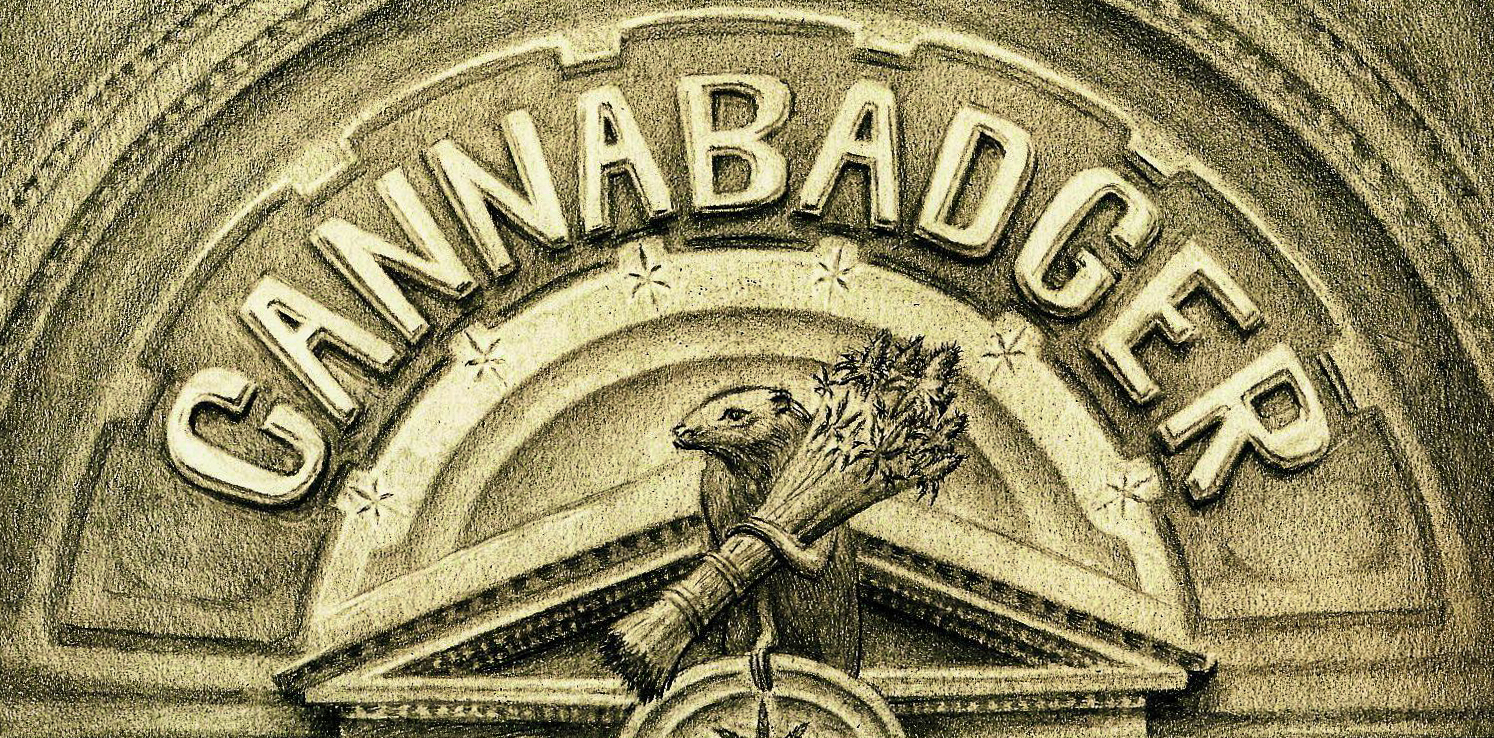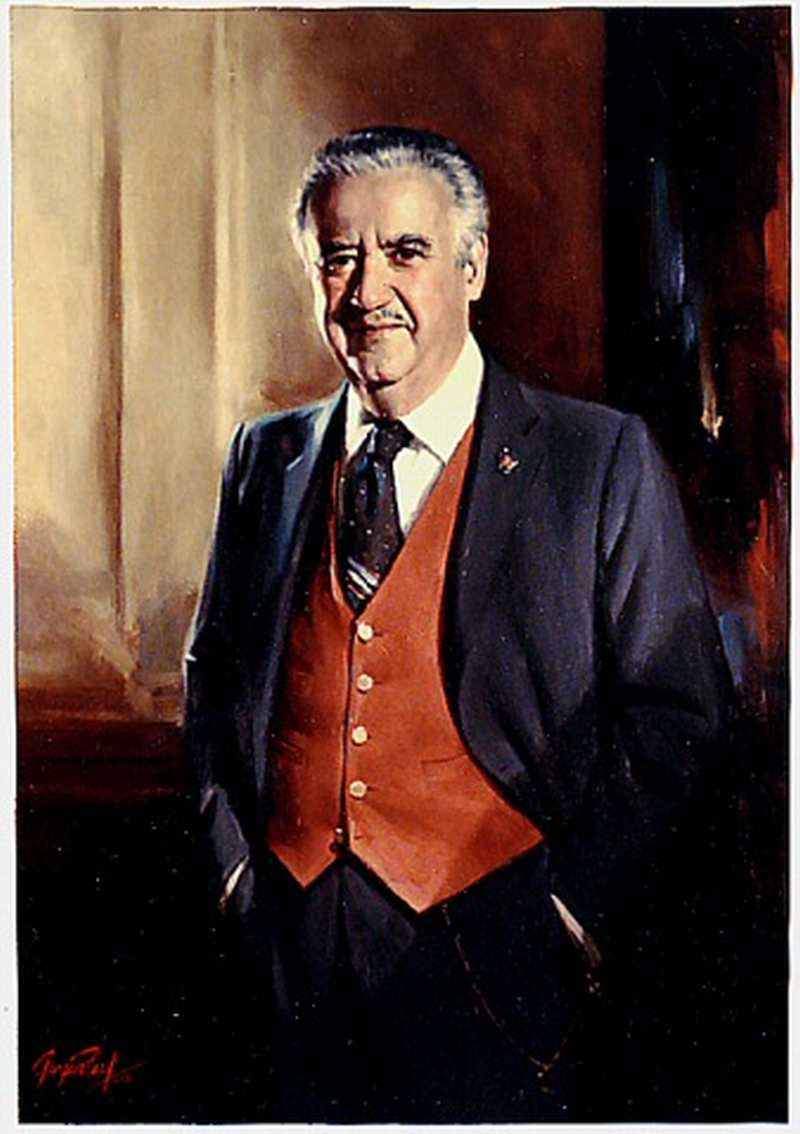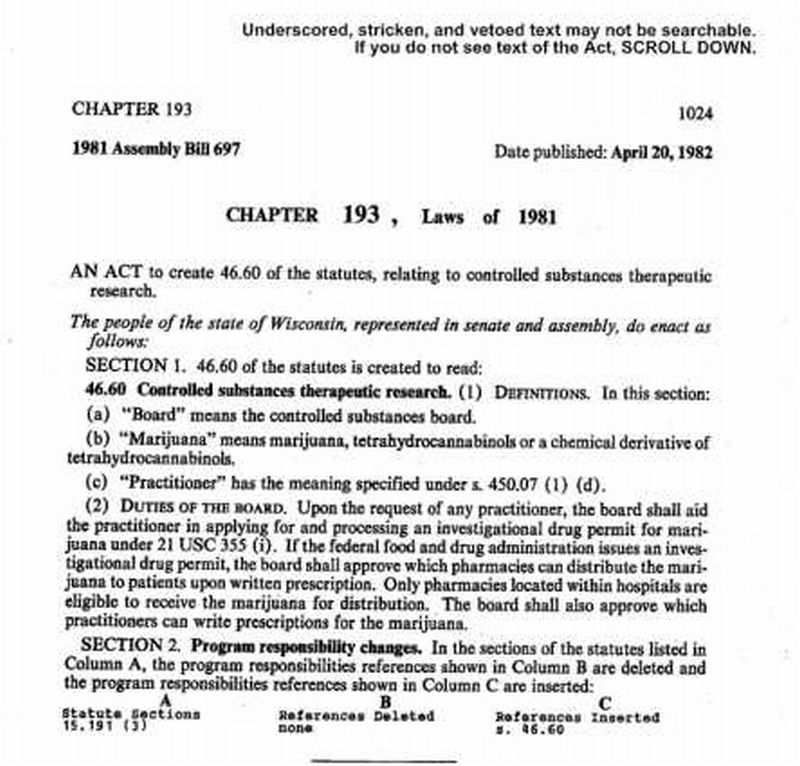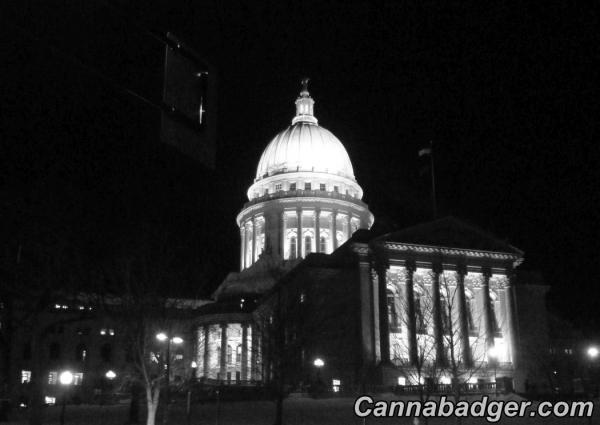Editor’s Note: Before I started Cannabadger, I published around 250 articles on Examiner.com, the Madison NORML Examiner starting in Nov. 2009. I stopped writing for Examiner in late 2014, and now it appears that many of the articles are no longer available. These articles contain useful historical info on Wisconsin cannabis bills that is relevant today. This was originally published April 8, 2010, and I’ve added information and updated it to reflect the 2014 passage of the CBD law 2013 Wisconsin Act 267.
In the late 1970’s, Wisconsin and numerous other states took up the issue of medicinal cannabis. In 1979, two bills were introduced, AB 107 and AB 279. Both bills authorized the establishment of therapeutic research programs to provide cannabis to patients. Both bills had hearings and made it to committee.
On July 31, 1979, a hearing was held on AB 279 at the State Capitol, and the late Robert Randall, a fellow glaucoma patient and the first legal federal medical cannabis patient was among those gathered in the Capitol’s stately North Hearing Room to give testimony. I was in attendance that day but did not testify. My then-State Assembly Representative, Steven Leopold, testified on my behalf.
Wisconsin eventually passed a medicinal cannabis law in 1982, L.B. 697. LB 697 cleared the State Assembly on Feb. 23, 1982 by a 77-19 margin. On March 23, 1982 it passed the State Senate by a nearly unanimous 32-1 vote.
Among those voting for in favor of medical cannabis were lawmakers who later rose to hold influential positions in and out of government including the future governors Tommy G. Thompson and Scott McCallum, future State Supreme Court Justice William A. Bablitch, future US Ambassador to Norway Thomas A. Loftus, then-and future State Sen. Tim Cullen, then Assembly reps and future State Senators Mike Ellis, Mordecai Lee and Mary Panzer, future Milwaukee Mayor John Norquist, and future Federal Judge Lynn S. Adelman.
The much shorter list of those who voted against includes current Wisconsin State Supreme Court Justice David Prosser, then an assembly representative from Appleton. Former GOP State Sen. Alan J. Lasee provided the single vote against in the Senate’s 32-1 landslide vote to pass the bill. Lasee served up until his retirement in 2010.
Then-Gov. Lee Sherman Dreyfus, a conservative Republican one-time medical cannabis opponent who became a supporter signed the bill into law on April 15, 1982, and it took effect upon publication by the Secretary of State’s office on April 20, 1982. The State of Wisconsin was officially on record in favor of the medicinal use of whole plant cannabis.
Unfortunately for patients, the TCRA was written with the expectation the federal government would supply the medical cannabis as they held a monopoly on legal supplies. Years later, Gov. Dreyfus later voiced support for medical cannabis as a Waukesha Daily Freeman columnist. His connection to the state’s medical cannabis law was noted in news articles after his passing Jan. 2, 2008.
This is the most current version from the state website, incorporating language from the CBD law passed in 2014, which like the TCRA, has yet to provide a single patient with access to their medicine:
961.34 Controlled substances therapeutic research.
(1) Upon the request of any practitioner, the controlled substances board shall aid the practitioner in applying for and processing an investigational drug permit for marijuana under 21 USC 355 (i). If the federal food and drug administration issues an investigational drug permit, the controlled substances board shall approve which pharmacies can distribute the marijuana to patients upon written prescription. Only pharmacies located within hospitals are eligible to receive the marijuana for distribution. The controlled substances board shall also approve which practitioners can write prescriptions for the marijuana.
(2)
(a) Upon the request of any physician, the controlled substances board shall aid the physician in applying for and processing an investigational drug permit under 21 USC 355 (i) for cannabidiol as treatment for a seizure disorder. If the federal food and drug administration issues an investigational drug permit, the controlled substances board shall approve which pharmacies and physicians may dispense cannabidiol to patients.
(b) If cannabidiol is removed from the list of controlled substances, or if cannabidiol is determined not to be a controlled substance, under schedule I of 21 USC 812 (c), the controlled substances board shall approve which pharmacies and physicians may dispense cannabidiol to patients as treatment for a seizure disorder.
History: 1981 c. 193; 1983 a. 189 s. 329 (18); 1985 a. 146 s. 8; 1995 a. 448 ss. 16 to 19; Stats. 1995 s. 961.34; 2013 a. 267.
Reefer Madness: Lighting Up in the Dairyland. Bailey. Wis. Law. Nov. 2014.
Here is the version of 961.34 Controlled substances therapeutic research in effect when I originally wrote the article in April 2010, 4 years before lawmakers passed 2013 Wisconsin Act 267, the CBD law.
961.34 Controlled substances therapeutic research.
Upon the request of any practitioner, the controlled substances board shall aid the practitioner in applying for and processing an investigational drug permit for marijuana under 21 USC 355 (i). If the federal food and drug administration issues an investigational drug permit, the controlled substances board shall approve which pharmacies can distribute the marijuana to patients upon written prescription. Only pharmacies located within hospitals are eligible to receive the marijuana for distribution. The controlled substances board shall also approve which practitioners can write prescriptions for the marijuana.
961.34 – ANNOT. History: 1981 c. 193; 1983 a. 189 s. 329 (18); 1985 a. 146 s. 8; 1995 a. 448 ss. 16 to 19; Stats. 1995 s. 961.34.
One final link: At the Dec. 15, 2009 combined Assembly/Senate Combined Health Committee Hearings, which last over 8 hours, Committee on Public Health Chair Representative Chuck Benedict asked me about the 1982 law after I noted its existence in my testimony. Below is a video clip of that moment:



